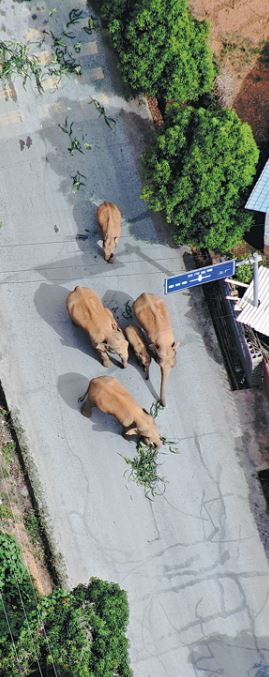National park proposed for wild elephants


China, which is among the world's 13 major habitats for wild Asian elephants, has made an outstanding contribution to protecting the species and increasing its population, Wu said.
"We can do even better. An Asian elephant national park will protect not only the elephants but also the region's ecosystem," he added.
Huang Wenbin, Beijing regional head of the World Wide Fund for Nature China, said, "Habitat restoration is the best way to resolve conflicts between humans and wild animals, including the elephants.
"Having such conflicts is not necessarily a bad thing, as it shows there is a booming population of wild animals as a result of the country's decades-long protection efforts."
In recent years, there have been more reports of wild animals, such as boars, bears and even tigers, encroaching on human society, Huang said.
China has promoted afforestation projects nationwide and significantly improved the environment, but nearly 50 percent of the country's forests planted in recent years consist of only about 10 types of trees, he said.
"As the country embarks on high-quality development, the plan for improving forests should be redesigned," he said.
"Those animals at the top of the food chain need to feed on smaller creatures. A great diversity of plants not only provides animals with food, but also with shelter and even areas where they can play," Huang said.
"There is no single solution for all habitats. Some regions can restore them naturally, while others may need a helping hand from humans," he said.
Huang and his team are conducting a pilot restoration project on the outskirts of Beijing. Based on scientific research, they have reduced forest density and adjusted tree species, with the aim of producing a more "friendly" environment for local biodiversity.
"Forest restoration is an extremely long-term plan. We will keep monitoring the results and hope the pilot will be helpful for other regions," he said.

























